I want to use the following SQL statement in a small C# application.
The SQL statement runs perfect in Access 2013.
INSERT INTO adressed_to (dialog,listener)
VALUES (
DMin("id", "FIGURE", "char_name='Doe' AND forename='John'"),
DMin("id", "DIALOG", "speaker=3 AND dialog_text='some text'")
);
When i try to run the following C# code, i get a "Too few parameters" exception, i tripple checked the spelling, i even copied the string from the Access query. Changing the single quotes in double quotes did not work, i got the same exception. Is it even possible to run this query within C#?
Other queries are working fine.
string addListeners = @"INSERT INTO adressed_to (dialog,listener)
VALUES (
DMin('id', 'FIGURE', 'char_name =? AND forename =?'),
DMin('id', 'DIALOG', 'speaker=? AND dialog_text=?')
); ";
foreach (Character listener in d.addressed_to)
{
using (OleDbCommand cmd = new OleDbCommand(addListeners, dbConn))
{
cmd.Parameters.AddWithValue("?", listener.name);
cmd.Parameters.AddWithValue("?", listener.forename);
cmd.Parameters.AddWithValue("?", speakerID);
cmd.Parameters.AddWithValue("?", d.dialog_text);
cmd.ExecuteNonQuery();
}
}
Changing the string to the following as suggested did not work:
@"INSERT INTO adressed_to (dialog,listener)
VALUES (
DMin(""id"", ""FIGURE"", ""char_name =? AND forename =?""),
DMin(""id"", ""DIALOG"", ""speaker=? AND dialog_text=?"")
); ";
The exception:
An exception of type 'System.Data.OleDb.OleDbException' occurred in System.Data.dll but was not handled in user code Additional information: Too few parameters. Expected 2.
